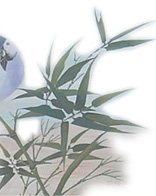|
 LISTEN TO THE TEXT LISTEN TO THE TEXT
 I have not published this column for a while because of time problems and also because I have been thinking of how best to improve it. Today I am trying out a new style to introduce some new sentences about catching a bus or a train and I hope to hear your comments. I have not published this column for a while because of time problems and also because I have been thinking of how best to improve it. Today I am trying out a new style to introduce some new sentences about catching a bus or a train and I hope to hear your comments.
In Chinese, when we want to express the meaning of catching some vehicle, we usually say "Wo Gan Che", "Wo Gan Gong gongqichen", "Wo Gan Huozhe", "Wo Gan Feiji" and so on. The sentence pattern is as below:
Sentence Pattern
No.0174: жИС赴蚶 пЉН I catch a bus ( or a train).
гААгААгААгААгААгААгААгААпЉН W«Т g«Оn chƒУгАВ
No.0175: жИСи¶Б赴蚶 пЉНпЉ©want to catch a bus (or a train).гАА
гААгААгААгААгААгААгААгААгААпЉН Wo yao gan cheгАВ
No.0176: жИСи¶Беο赴蚶 пЉН I am going to catch a bus (or a ttrain).
гААгААгААгААгААгААгААгААгААгААпЉН Wo yao qu gan cheгАВ гАА
Practice of Sentence Pattern
Practice of No. 0174:
жИС赴蚶 пЉН I catch a bus (or a train).
жИС赴зБЂиљ¶гААпЉНгААI catch a train.
жИС赴еЕђдЇ§иљ¶ -- I catch a bus
жИС赴й£ЮжЬЇ -- I take an airplane.
жИС赴иИє -- I take a ship.
Practice of No. 017пЉХ:
жИСи¶Б赴蚶 пЉНпЉ©want to catch a bus ( or a train).
 жИСи¶Б赴зБЂиљ¶ пЉНпЉ©want to catch a train. жИСи¶Б赴зБЂиљ¶ пЉНпЉ©want to catch a train.
жИСи¶Б赴еЕђдЇ§иљ¶ пЉНпЉ©want to catch a bus.
жИСи¶Б赴й£ЮжЬЇ пЉНпЉ©want to take an airplane
жИСи¶Б赴иИє пЉНпЉ©want to take a ship.
Practice of No. 176:
жИСи¶Беο赴蚶 пЉНпЉ©am going to catch a bus (or a train).
жИСи¶Беο赴зБЂиљ¶ пЉНпЉ©am going to catch a train.
жИСи¶Беο赴еЕђдЇ§иљ¶ пЉНпЉ©am going to catch a bus.
жИСи¶Беο赴й£ЮжЬЇ пЉНпЉ©am going to take an airplane.
жИСи¶Беο赴иИє пЉНпЉ©am going to take a ship.
Key Words:
catch a bus or a trainвȴ赴蚶 -- g«ОnchƒУ
Grammar:
жИС иµґ иљ¶гАВ
subject verb object
жИС и¶Б 赴 иљ¶гАВ
subject гААadverbial verb object
жИСгААгААгАА и¶БгААгАА гАА еОїгААгААгААгАА赴蚶
subject adverbial verb object
New Words and Pronunciation :
Please click on any Chinese character to see its Chinese pinyin, pronunciation and meaning, and then to read it after me..
 If you have any questions, comments or suggestions, please write to shirley@ebridge.cn, or shirleyz004@yahoo.com, you are welcome. If you have any questions, comments or suggestions, please write to shirley@ebridge.cn, or shirleyz004@yahoo.com, you are welcome.
--Shirley Zhang
Written, Edited and Recorded On Sun, April 22, 2007
|

